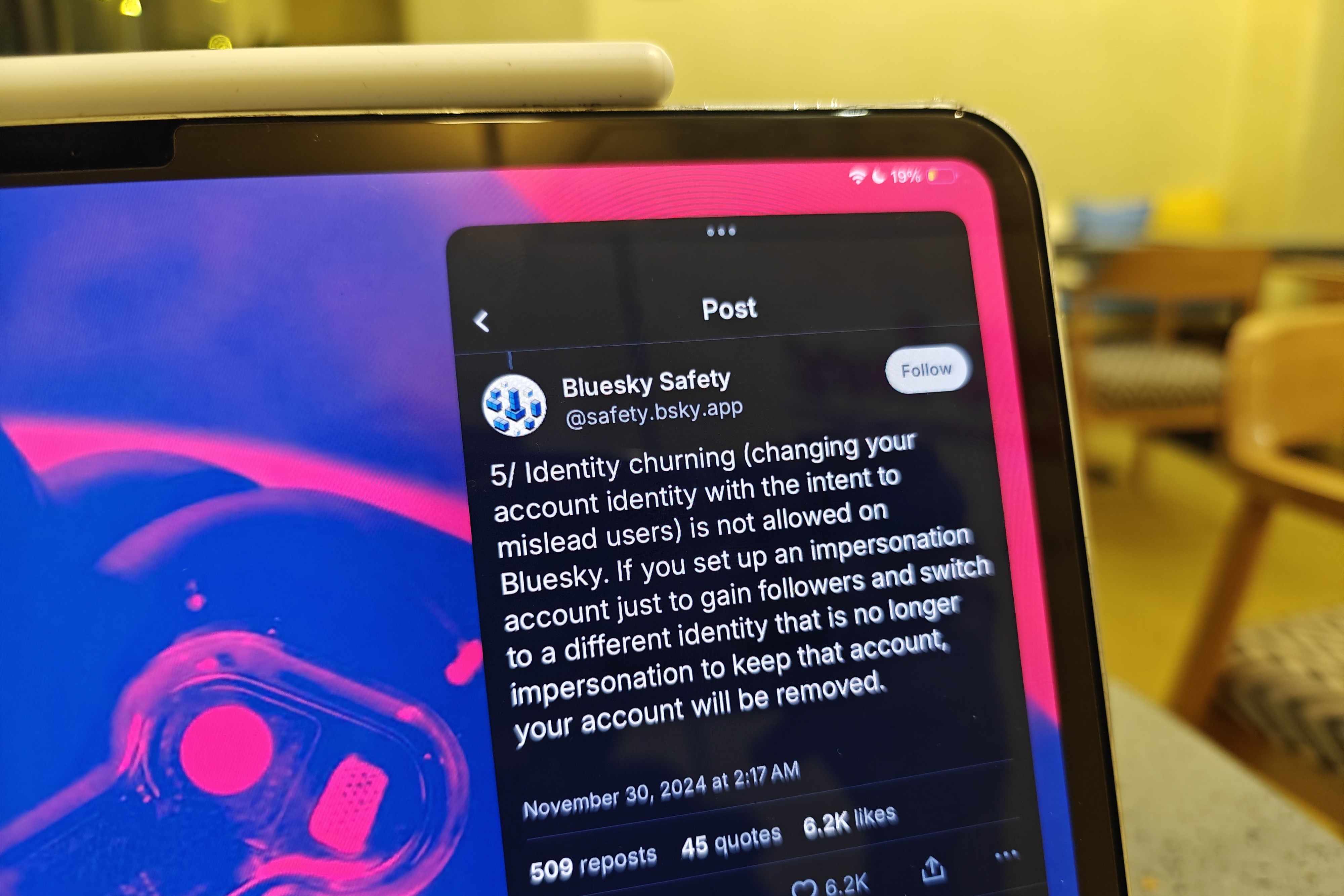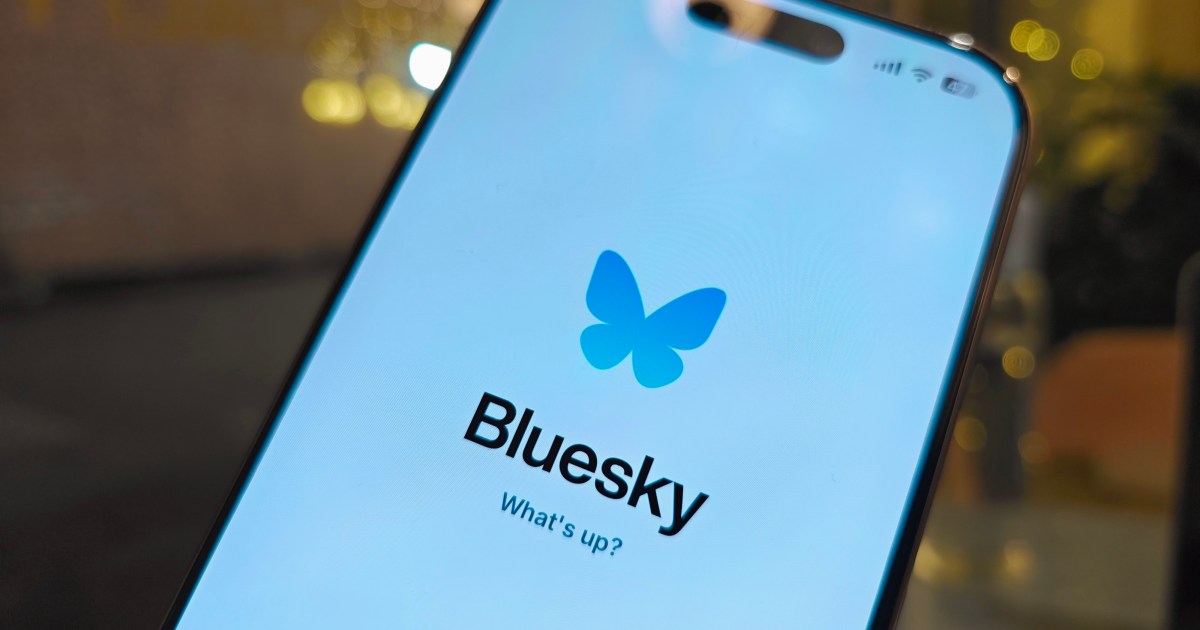Bluesky, the decentralized social media platform often touted as a viable alternative to X (formerly Twitter), recently celebrated surpassing 20 million users and briefly topped Apple’s App Store charts. This rapid growth, however, has brought its own set of challenges, particularly concerning impersonation and identity theft.
Addressing Impersonation Concerns
Bluesky’s security team recently announced policy changes to combat the rising tide of impersonation on the platform. In a Bluesky post, the team stated that accounts created to impersonate others for the purpose of gaining followers will be removed. “Impersonation and handle-squatting accounts will be removed,” the post declared. The company further emphasized that “identity churning is not allowed on Bluesky,” meaning users cannot repeatedly create and delete accounts to impersonate different individuals.
 Policy update by Bluesky seen on an iPad.
Policy update by Bluesky seen on an iPad.
Parody accounts are permitted, but they must clearly identify themselves as such in both their username and profile bio. Accounts failing to meet both requirements will be removed. Bluesky acknowledges a backlog of moderation requests due to the influx of new users and has quadrupled its moderation team to expedite the handling of impersonation reports.
Strengthening Verification Measures
Beyond addressing immediate impersonation issues, Bluesky is also working towards implementing more robust identity verification methods. Currently, the primary verification method is through custom domain names, a process that remains somewhat technical. Bluesky CEO Jay Graber has expressed the company’s desire to create a decentralized verification system where Bluesky isn’t the sole authority over identity authentication, diverging from the centralized, often paid, verification models of platforms like X, Facebook, and Instagram.
The Current Impersonation Landscape
The lack of readily apparent verification indicators on Bluesky has created an environment ripe for exploitation. Security researcher Alexios Mantzarlis recently highlighted the extent of the problem in his newsletter, revealing that almost half of the top 100 Bluesky accounts had at least one impersonator. “Most are cheap knock-offs of the bigger account, down to the same bio and profile picture. Only 16% of the duplicates that I reviewed had an ‘impersonation’ label,” Mantzarlis noted. This underscores the urgent need for improved verification and moderation on the platform.
Bluesky’s Stance on AI Data Scraping
While grappling with impersonation issues, Bluesky has taken a firm stance against using user content for AI training, distinguishing itself from platforms like X and Meta, which utilize public data to train their generative AI models.
Conclusion
Bluesky’s rapid growth presents both opportunities and challenges. While the influx of new users is a positive sign, addressing issues like impersonation is crucial for maintaining platform integrity and user trust. The announced policy changes and planned verification improvements are steps in the right direction, and their effectiveness will be closely watched as Bluesky continues to evolve. The platform’s commitment to user privacy regarding AI training further solidifies its position as a potential alternative in the evolving social media landscape.










